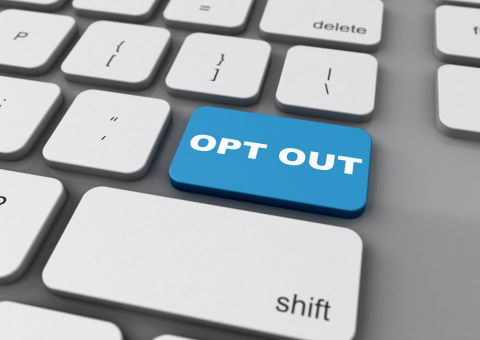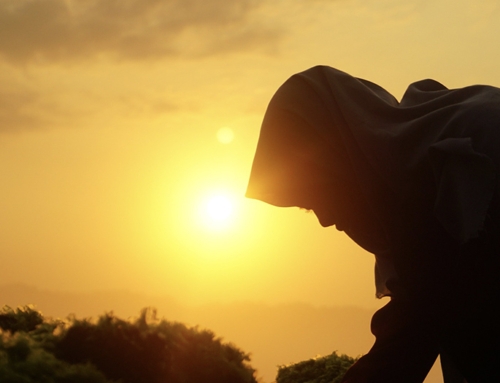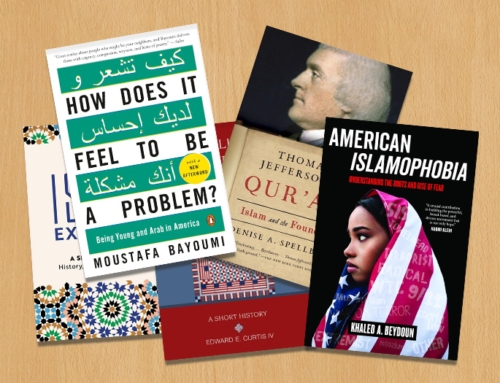The Challenge of the LGBTQ Agenda in Public Schools
In Muslim communities throughout the country, parents are steering their families through a fast changing society, where they are taught to respect people of all kinds, regardless of culture, religion and identity while also holding steadfast to their own beliefs and morals. The cultural shifts in society today make this task precarious and one to delicately tread upon.
The major acculturation of our times is the result of the prominence and influence of the LGBTQ community. In Islam, any sexual relations outside of marriage, including between a man and a woman are prohibited. If one has feelings and desires toward someone of the opposite or of the same sex, they are not supposed to act on these [Islam & The LGBTQ Movement]. Additionally, any relations of the same sex, or changing one’s gender from that which they are born with are prohibited. However, contemporary discourse is defining identity and LGBTQ rights as a moral issue. We are told that sexual desires, family structure, and our identity are directly linked to equality, dignity, and human rights. So, how are Muslim parents navigating this paradigm of raising respectful children, instilling Islamic beliefs and still being morally conscious?
Islamic Schools & Homeschooling
In recent years, a growing number of Muslim parents have been enrolling their children in Islamic schools as an alternative to mainstream public education and to ensure their children receive an education that aligns with their faith and cultural identity. This shift in educational choice is driven by concerns over the introduction of the LGBTQ agenda in public schools.
New legislation found throughout parts of the country mandate that an LGBTQ-inclusive curriculum must be taught in schools. These curricula can vary from health education to the history of how such groups have contributed to society, varying from state to state and district to district. Unlike teaching about other communities’ cultures and religions, the LGBTQ movement is not a culture, but a community that revolves around sexuality. Teaching about LGBTQ in schools means teaching children about sexuality. As a result, many Muslim parents have expressed strong reservations about the content and presentation of LGBTQ to school aged children, especially since it not only contradicts their religious beliefs and traditional family values, but introduces sexuality to children without parents’ consent.
In an effort to protect their children, some parents have resorted to enrolling their children in Islamic schools. Islamic schools provide an environment where religious teachings are integrated into the curriculum, offering parents a sense of security that their children’s education will be in harmony with their religious convictions. By not going to public school, Muslim children are somewhat protected from the sexuality taught in the LGBTQ curriculum.
Along with an increase in Islamic school enrollment, Muslim parents are also using the option to homeschool their children. In this way, they have direct control over the content their children are exposed to and at the same time, introduce topics such as sexuality when they feel it is best for their children, and can teach and reaffirm their Islamic beliefs and values.
Opt-Out
In many states, parents do not have the option to opt-out of LGBTQ history in public schools. The regulations mandated by the Department of Education does not contain an opt-out provision, however, parents have the right to submit requests to opt-out, although the requests do not have to be accepted.
Across several states, there’s a debate surrounding LGBTQ education in public schools, and it has ignited discussions about sexuality, morals, cultural, and religious values, sparking controversy and even legal battles.
Many Muslim parents and children are speaking out at board of education meetings, encouraging the opt-out option from curriculums that promote the LGBTQ agenda. And interestingly, Muslims are also finding allies in Christian and Jewish faith members, many whose viewpoints align the same.
Respect
As Muslims we agree that all human beings should be treated with respect and dignity. We learn from the sunnah (practice) of our beloved Prophet Muhammad (peace be upon him), who said, “Kindness is a mark of faith, and whoever is not kind has no faith.”
Muslim parents are teaching their children about showing respect to every person, regardless of their faith, culture, identity but not in lieu of compromising their own beliefs. With these concepts in mind, Muslim parents have the difficult task of safeguarding their children from what they consider to be immoral sexual acts; but also integrating them into an evolving society of LGBTQ supporters.
Islamic values encourage respect of different beliefs; however, this does not equate to promoting the LGBTQ movement. Parents are advocating for respect of every human, but stressing that respect does not equate to endorsing, agreeing with, or promoting forms of sexuality taught by the LGBTQ movement.
Ultimately, treating people with kindness, empathy, and understanding is crucial regardless of your personal beliefs or opinions. However, it’s crucial to differentiate between respecting individuals and endorsing specific ideologies. Muslim parents emphasize that respecting someone’s humanity doesn’t equate to endorsing sexual acts that contradict their own religious values. As society continues to become more hypersexualized, many parents are forced to choose between a public education and protecting their children’s morality and innocence.
Got Questions?
We have Answers. Get in touch now.








